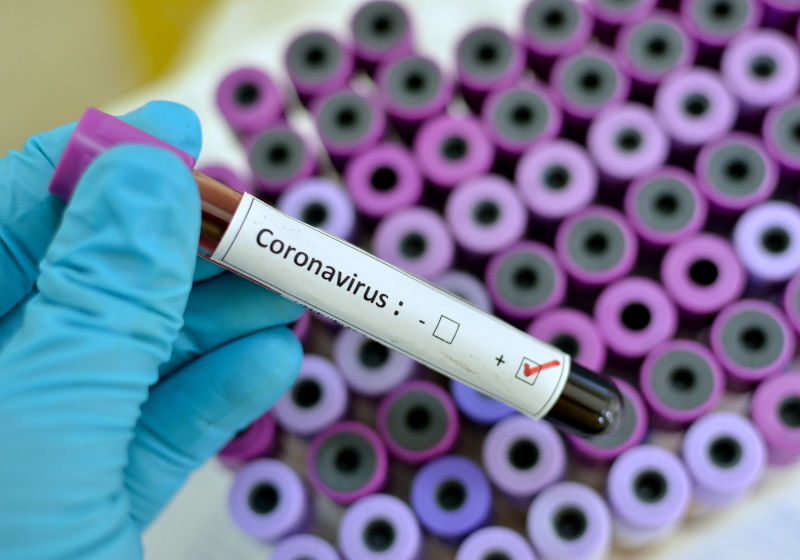
Share this post!
With the initial news that the deadly coronavirus was spreading in China, many Toronto residents couldn’t help but recall the SARS epidemic of 2003. However, after 438 probable and suspect SARS cases and 44 deaths in Canada from SARS, we have learned a lot about the spread of such viruses and are better equipped to manage the potential spread of the Coronavirus today. As of January 30, 2020, the World Health Organization (WHO) has now declared a global emergency. Authorities in China are doing everything possible to help contain the virus. Meanwhile in Canada, airlines such as Air Canada have cancelled all flights to the country and the federal government has issued a travel warning that Canadians should avoid all non-essential travel to China and all travel to the province of Hubei.
Knowing this, Canadians can feel a little more secure, but should still be aware of the facts about the virus. As well, property managers and residents of condo buildings where larger populations of people share space, should understand what precautions are necessary to avoid panic over the possible threat the virus presents.
What is Coronavirus?
According to WHO, Coronaviruses (CoV) cause illness ranging from the common cold to more severe diseases such as SARS. The recent coronavirus originating in the province of Hubei in China is referred to as a “novel” coronavirus (nCoV), because it is a new strain.
Coronaviruses are transmitted between animals and people and in this most recent strain it is believed the disease began with bats.
Common signs of infection include:
- Respiratory symptoms
- Fever
- Cough
- Shortness of breath
- Breathing difficulties
If the infection is left to progress it can lead to more serious issues including:
- Pneumonia
- Severe acute respiratory syndrome
- Kidney failure
- Potential death
Since the confirmation of two cases in Toronto and one in Vancouver Canada is on high alert to help contain the spread of the virus.
How is Coronavirus Spread?
According to the Centers for Disease Control and Prevention, the coronavirus is believed to be spread via respiratory droplets from coughing and sneezing. Several medical experts say at this time, the new coronavirus appears to be less contagious than other airborne illnesses. Dr. Theresa Tam, Canada’s Chief Public Health Officer, continues to stress it is unlikely the virus will spread through casual contact. Instead it will require being in close quarters for a prolonged period with an infected patient.
How can I Protect Myself from Coronavirus?
WHO recommends avoiding contact with people displaying symptoms of respiratory disease such as coughing and sneezing. In hand with the usual precautions such as regular hand washing and covering the mouth and nose when coughing and sneezing they also recommend thoroughly cooking meat and eggs. If you have been out in public, avoid touching your eyes, face, nose and mouth until you have washed your hands with antibacterial cleanser. Wearing a mask will not protect you from catching the virus. Instead masks are intended for those who could have the virus to help prevent them from spreading it to others.
How is the Spread of Coronavirus Being Managed in Toronto?
Public health officials in Toronto have contacted those that might have been exposed to the coronavirus when they shared a flight with the two confirmed coronavirus patients. According to Eileen de Villa, Toronto’s Medical Officer of Health, none of the other passengers have shown symptoms of the virus. However, passengers with concerns about the virus can call the hotline they have set up at 416-338-7600.
According to Allison McGeer, an Infectious Disease Consultant at Sinai Health System during the SARS outbreak in Toronto, Toronto got a lot of things right in their attempts to contain the virus. “They clearly did enough right things to control the outbreak,” she says. However, she also says many precautions taken might not have been unnecessary including quarantine and hospital shutdowns.
This opinion is echoed by Dr. Peter Donnelly, President and CEO of Public Health Ontario. “If a case comes here, and it is probably likely that we will have a case here, it will still be business as normal,” he said at the time the virus first made headlines. “This was a disease unknown to science only two weeks ago and we now have the full genetic fingerprint of the virus and we have a test, which is specific and reliable,” he explains. “In situations like this, speed and certainty are both very important.”
As well, the agency Dr. Donnelly heads up was developed in response to the SARS scare. This means there is now a specific agency ready to manage outbreaks such as these.
Coronavirus Travel Precautions
According to CTV news, in Canada, there are three airports that receive direct flights from China, including Toronto. At these airports screening is in place, requiring travelers to self-report possible symptoms they are experiencing to customs officials. As well, a question has been added to electronic kiosks that requires people to specify if they were in the province of Hubei at the time outbreak was reported.
Tina Namiesniowski, President of the Public Health Agency of Canada says more officials will be provided at the airport to assist in the screening process. As well, the Canadian government has arranged to evacuate Canadians from China, but this comes with its challenges. “The Chinese authority will not let anyone who might be infected on the plane,” Dr. Tam warned the House of Commons health committee.
What You Should Do If You Suspect Infection?
A National Post article provided an overview of what to do if you are showing Coronavirus symptoms. You should consult your health care provider as soon as possible. Health officials are urging people with symptoms to stay home as there is potential to spread the virus. It is important to ensure you are covering your mouth and nose with a tissue when you have to sneeze or cough. You should call ahead to your doctor’s office and let them know you are concerned you could have the virus and listen carefully to their instructions. While home, wash your hands after blowing your nose and throw the tissue in the garbage immediately. Keep surfaces and shared objects in your home disinfected and avoid sharing everyday household items such as dishes, utensils, cups, bedding and towels.
You should limit contact with others to reduce the risk of spreading any such illnesses, even if it turns out just to be the flu. Stay home except to get medical care. Call ahead to let your clinic or hospital know your symptoms have worsened and that you are being assessed for the coronavirus. Do not use public transportation.
How to Communicate Information About Coronavirus in your Condo?
According to risk communications expert Professor Peter Sandman, sharing information during this difficult time should keep people informed but calm. If you choose to communicate with your tenants, use these tips:
• Provide information about most likely scenarios, not the worst case
• Acknowledge uncertainty with promises to keep people updated as information becomes available
• Be clear and consistent in messaging
• List recommended ways to protect against the virus such as urging handwashing and consider adding hand sanitizer at building entrances
For more information we recommend reliable, official sources including the Public Health Agency of Canada’s information line at 1-833-784-4397 as well as:
• Public Health Agency of Canada
• U.S. Centers for Disease Control
• B.C. Centre for Disease Control
CPO Management Inc. has been working with condominium corporations for over 10 years and can assist in areas such as managing tenant and owner expectations during crisis situations. If you would like more information on condo management to assist in appropriate communication, click here.
